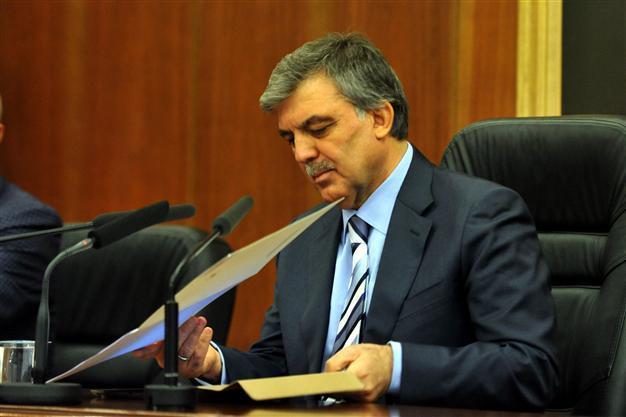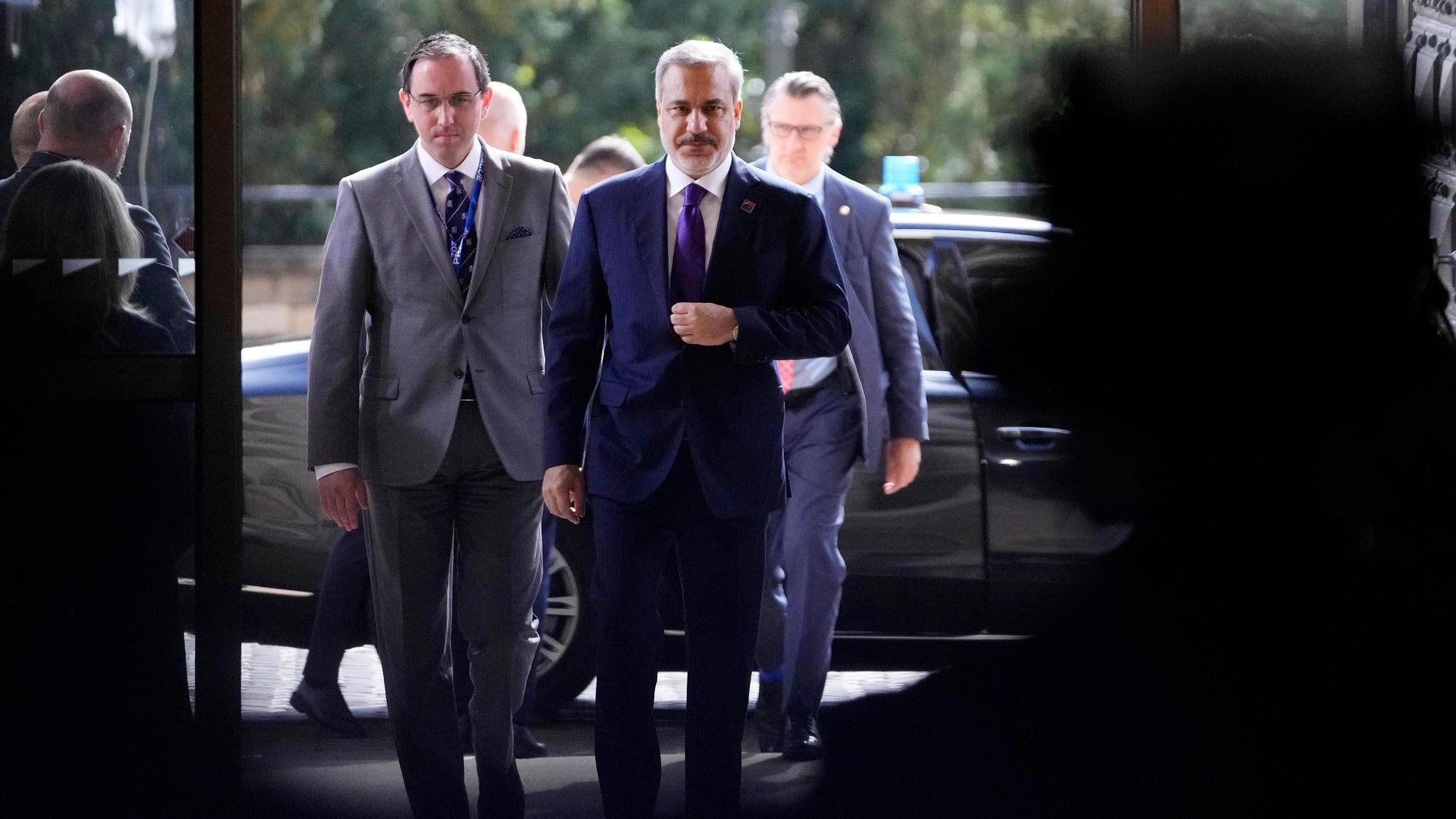Turkish President Gül approves judicial law with reservations
ISTANBUL

President Abdullah Gül approved Feb. 25 a controversial bill reshaping the Supreme Board of Judges and Prosecutors (HSYK), acknowledging that he had warned the justice minister that the current text contained many unconstitutional provisions.
Turkish President Abdullah Gül approved a controversial judicial bill yesterday (Feb. 26), amid domestic and international criticism regarding increased political control over judges and prosecutors, thus casting a shadow over the independence of courts in the country.Prime Minister Tayyip Erdoğan had asked his new Justice Minister Bekir Bozdağ to draft a new law for the Supreme Board of Judges and Prosecutors (HSYK) following the graft probe that opened on Dec. 17, 2013, believing that it was under the influence of a group targeting him. The HSYK is tasked with appointing and inspecting judges and prosecutors. In order to change the balance within it against the sympathizers of his former close ally Fethullah Gülen, a moderate Islamist scholar living in the U.S., Erdoğan decided to change the law.
There has been strong resistance to the move from opposition parties and civil society, such as from the Union of Bars, as well as from Turkey’s allies in the West, the U.S. and European Union, regarding judicial independence.
Gül made it public last weekend that he was not happy with the draft of the HSYK bill. In the first phases of Erdoğan’s initiative, after consulting with opposition leaders, he pressed for a consensual constitutional arrangement, which failed due to the lack of a consensus in Parliament.
Amid opposition calls to veto the bill, Gül told reporters that he found 15 points violating the Constitution in the 12 articles of the draft, which he asked the justice minister to correct. He said that was his way to “correct” the controversial parts of the bill before it came to his desk for approval.
He gave the example of another bill that caused domestic and international uproar about tighter government control over the use of the Internet. (Erdoğan admitted in a speech in Parliament on Feb. 25 that those measures were partly to prevent the release of telephone taps and similar broadcasts alleging links of corruption claims against him, or his family or Cabinet ministers.) Gül said he had approved the Internet bill, but asked the government to amend a few articles that concentrated too much power in the hands of the Telecommunications Board (TİB). Erdoğan had appointed an intelligence officer as the head of the TİB by providing judicial protection for the post equal to that of the National Intelligence Organization (MİT) chief, a week after the graft probe opened.
As Gül suggested, Erdoğan’s Justice and Development Party (AK Parti) submitted a number of corrections to the bill to Parliament on the evening of Feb. 25. Gül was observing the developments closely and when an AK Parti deputy gave a counter-correction proposal giving the authority to the TİB chief without the need for a court decision if he thinks there is a cyber-attack, the president had to send another note to the justice minister to nix this proposal.
Coming back to the HSYK bill, when reporters asked him to give examples of violations of the Constitution, he only mentioned the bill’s suggestion to appoint the justice minister as the head of the Inspection Board. Turkey is already subject to international criticism because having the justice minister as the head of the HSYK would allow a political figure to act both as prosecutor and judge when it comes to the professional fate of prosecutors and judges.
According to the presidential press release about the approval of the bill, the government agreed to correct most of the 15 points that Gül had - informally - objected to. For example, Erdoğan agreed not to give unconditional power to the justice minister to sack or appoint board members at will, nor to be the only authority to propose candidates for new positions or change the number of members of departments.
Also, thanks to the intervention from the president, the minister will not be the sole authority to choose the head of judicial departments and make temporary appointments to HSYK departments, in the event of removals from positions.
In sum, the president was, in his own way, successful at moderating the degree of political intervention into the key judicial body, if not completely preventing it.
However, apparently Erdoğan insisted the justice minister should stay as the head of the Inspection Board. This had been the only example Gül had given to reporters as being unconstitutional, and was also one of the most important points of the whole process. Yes, as a concession, the government agreed to limit the disciplinary capacity of the minister, also as a chief inspector, but he still had to remain as the chief judicial inspector.
Gül has not hidden his dissatisfaction, as he announced that he would be taking that article to the Constitutional Court. He wants the Court to annul it if it rules to do so.
The main opposition Republican People’s Party (CHP) had already applied to the Court to nix the bill, but was rejected on the basis that it had to be approved by the president first. Now it has been approved, and not only has the president applied to cancel certain parts of it, but the opposition says it will renew its application to make it void.
The limited improvements from the president are not likely to calm domestic and international worries about judicial independence in Turkey, because of the empowered role of the justice minister over judges and prosecutors.
But it is a matter of curiosity whether the Constitutional Court will turn down the government’s desire to have more control over courts, or, if so, how could possible disciplinary actions in the meantime be taken back afterward, as the country heads for critical local elections on March 30, almost a month away.











